
Trial Results: ECOG-ACRIN Completes the First Randomized Phase 3 Clinical Trial of Neoadjuvant Immunotherapy in Patients with Kidney Cancer
October 13, 2022
Trial Spotlight: Yishai Ofran on the EA9181 Study for Acute Lymphoblastic Leukemia
October 13, 2022Institution Spotlight: Michigan Cancer Research Consortium NCORP
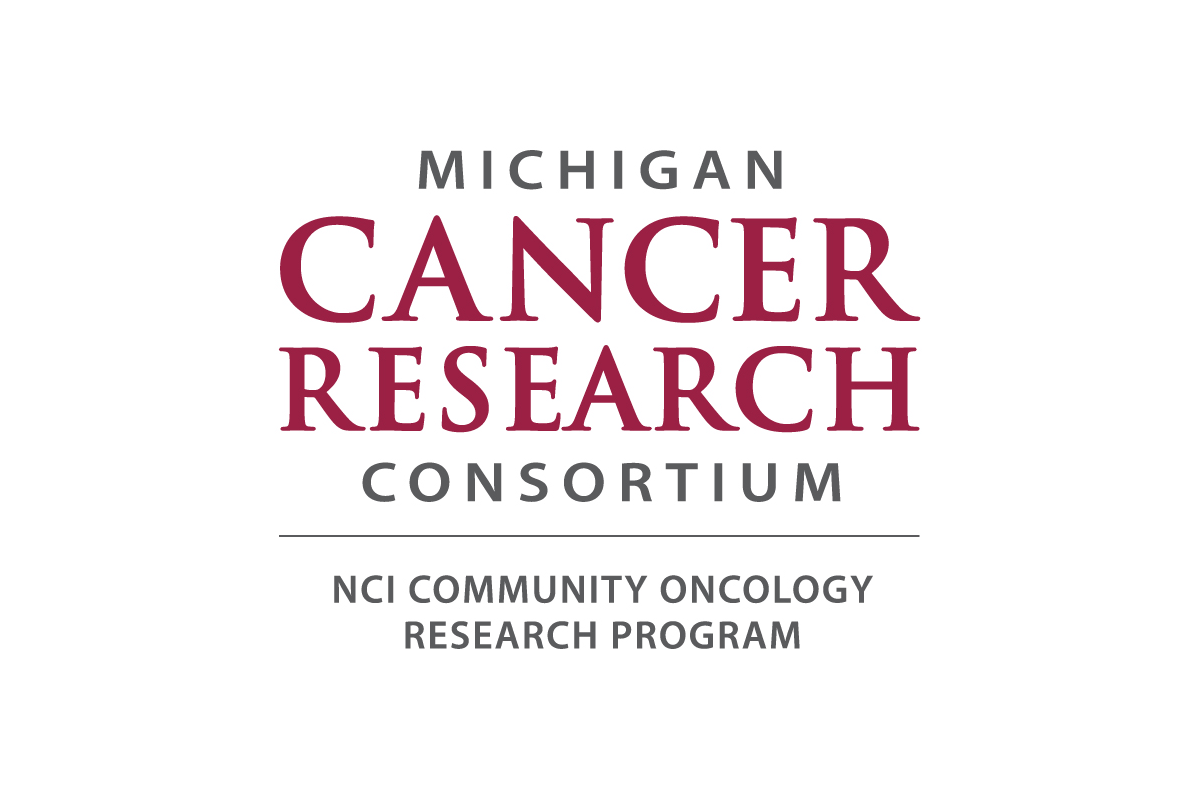
By Tareq Al baghdadi, MD and Rose Juhasz, PhD
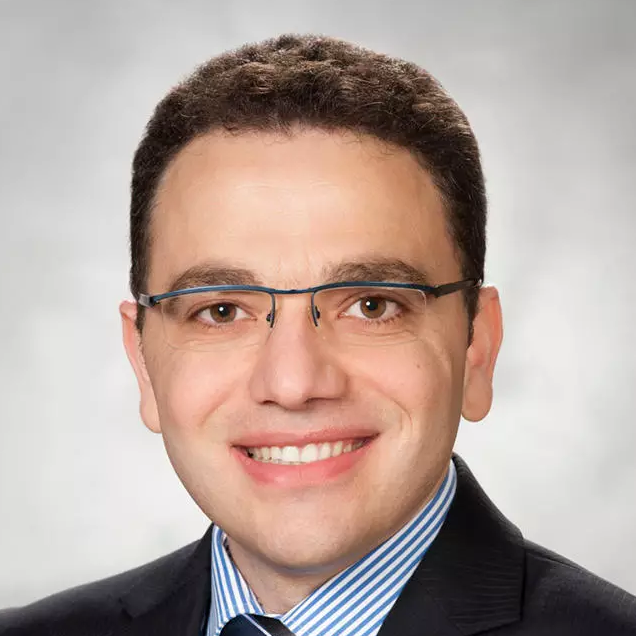 Dr. Al baghdadi is a Voting Member, ECOG-ACRIN Principal Investigator Committee and Hematologist and Medical Oncologist, Trinity Health IHA Medical Group
Dr. Al baghdadi is a Voting Member, ECOG-ACRIN Principal Investigator Committee and Hematologist and Medical Oncologist, Trinity Health IHA Medical Group
 Dr. Juhasz is the Director of Oncology Research, Michigan Cancer Research Consortium
Dr. Juhasz is the Director of Oncology Research, Michigan Cancer Research Consortium
History and Background
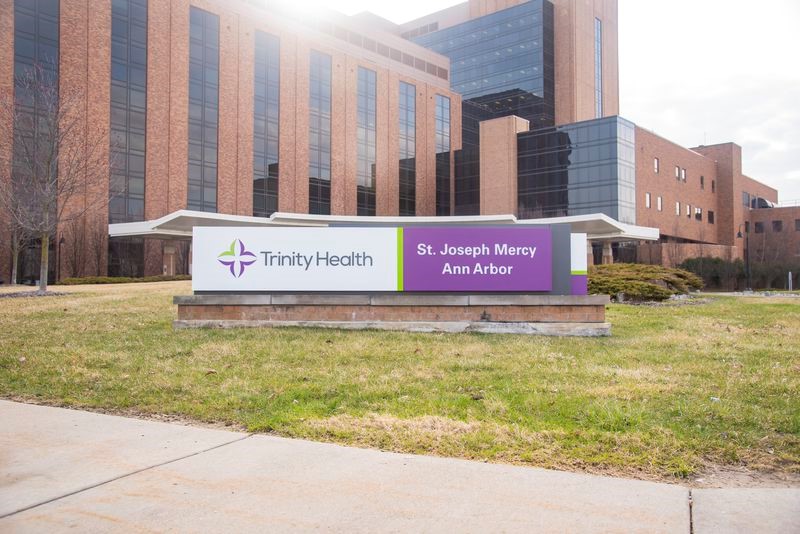 The Michigan Cancer Research Consortium (MCRC) includes medical centers that have met the highest standards of excellence in conducting cancer clinical trials. MCRC has sites in Michigan, Pennsylvania, and Florida that enroll hundreds of patients each year in 130+ clinical trials, including cancer care delivery research studies. MCRC includes over 200 medical oncologists, radiation oncologists, surgeons, and other specialists.
The Michigan Cancer Research Consortium (MCRC) includes medical centers that have met the highest standards of excellence in conducting cancer clinical trials. MCRC has sites in Michigan, Pennsylvania, and Florida that enroll hundreds of patients each year in 130+ clinical trials, including cancer care delivery research studies. MCRC includes over 200 medical oncologists, radiation oncologists, surgeons, and other specialists.
MCRC was established in 1994 at St. Joseph Mercy Hospital in Ann Arbor, Michigan, which resides within one of the nation’s largest healthcare systems, Trinity Health, based out of Livonia, Michigan. The MCRC continues to expand its program and add new component hospitals both within and outside of Trinity Health. Currently, the major Michigan health centers within MCRC are:
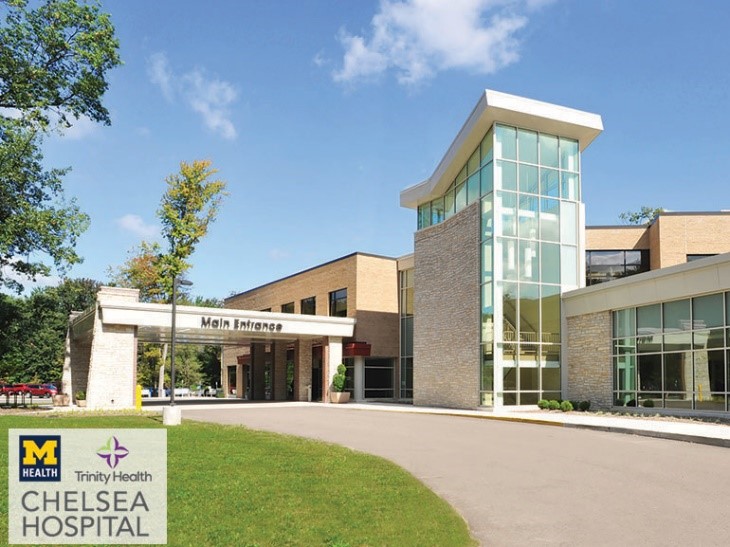
- Ascension St. John Hospital in Detroit
- Ascension St. John Macomb-Oakland Hospital in Warren
- Ascension St. Mary's Hospital in Saginaw
- Chelsea Hospital in Chelsea (a joint venture with Michigan Medicine)
- Genesys Hurley Cancer Institute in Flint
- Sparrow Herbert-Herman Cancer Center in Lansing
- Trinity Health Ann Arbor Hospital in Ypsilanti
- Trinity Health St. Joseph Mercy in Brighton
- Trinity Health St. Joseph Mercy in Howell
- Trinity Health St. Mary Mercy in Livonia
- Trinity Health St. Joseph Mercy Oakland in Pontiac
MCRC also includes these major sites:
- Holy Cross Health in Fort Lauderdale, Florida
- Lehigh Valley Health Network in Allentown, Pennsylvania
View the full listing of Affiliates and Sub-Affiliates on the NCORP website.
Scientific Strengths and Expertise
We demonstrate a variety of strengths that apply to our work with the ECOG-ACRIN Cancer Research Group (ECOG-ACRIN). Multiple physician champions and teams across MCRC are key to our success in enrolling patients in trials and caring for them. Examples of our contributions to ECOG-ACRIN include:
- Myelodysplastic Syndrome or Myeloproliferative Neoplasms – So far, MCRC has succeeded in recruiting over 65 patients to the ongoing NHLBI-MDS / The National MDS Study over the past 5 years. Principal investigator (PI) Tareq Al baghdadi, MD (pictured above) serves on both the protocol and publications committees for this study. He is a co-author of three manuscripts thus far: a report on the MDS biorepository (Sekeres MA. Leuk Lymphoma. May 2019); COVID-19 outcomes among participants (Padron E. Blood. November 2021); and, a comparison of diagnoses discordance between local and central review (Zhang L. Blood. November 2018). His work in this area is a natural extension of prior fellowship research training focused on acute myeloid leukemia (AML) signaling pathways, completed at Indiana University.
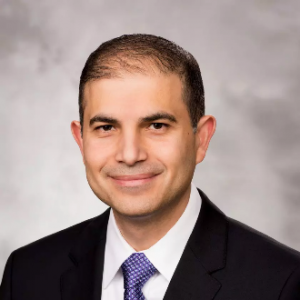 NCI-MATCH – NCI-MATCH accrual and biospecimen collection exceed 100 cases at MCRC. Deputy PI Elie Dib, MD, MS, FACP (pictured), served on the NCI-MATCH committee and is a top enroller yearly to all our studies. He also shares his expertise in cancer precision medicine and immunotherapy through an adjunct lecturer position for Johns Hopkins University’s Advanced Academic Program focused on Individualized Genomics and Health. Dr. Dib was recently elected to a 3-year term on the National Cancer Institute’s (NCI) Genitourinary Cancers Steering Committee.
NCI-MATCH – NCI-MATCH accrual and biospecimen collection exceed 100 cases at MCRC. Deputy PI Elie Dib, MD, MS, FACP (pictured), served on the NCI-MATCH committee and is a top enroller yearly to all our studies. He also shares his expertise in cancer precision medicine and immunotherapy through an adjunct lecturer position for Johns Hopkins University’s Advanced Academic Program focused on Individualized Genomics and Health. Dr. Dib was recently elected to a 3-year term on the National Cancer Institute’s (NCI) Genitourinary Cancers Steering Committee.- Lung Cancer – We have also had success enrolling patients in ECOG-ACRIN protocols for lung cancer. Our component site Sparrow Herbert-Herman Cancer Center has led the way in this area with over 20 patients enrolled across four different protocols. The Sparrow team is under the direction of Gordon Srkalovic, MD, PhD, and Harsha Trivedi, RN, PhD.
- ComboMATCH – Dr. Al baghdadi is the community co-chair of an upcoming subprotocol in ComboMATCH (EAY191), a successor trial to NCI-MATCH that is currently in development.
- Lymphoma – Dr. Al baghdadi is a co-investigator on the international E1411 trial. He is also a co-author of the initial data presented in 2021, showing that bortezomib did not significantly improve the primary endpoint of progression-free survival when added to the combination of bendamustine and rituximab (BR) as initial treatment for patients with mantle cell lymphoma.
- TMIST – MCRC staff are key to the success of enrolling 113 patients thus far in TMIST, the ongoing breast cancer screening trial. A number of staff are study participants and continue to champion recruitment.
Staff Engagement and Quality Assurance Efforts
The research nursing teams at our sites support all enrollments and patient case management. They bring a wealth of experience in cancer clinical trials.
We are currently preparing for an upcoming ECOG-ACRIN audit. Our data management team, research nurses, and managers, all highly experienced in data and healthcare quality, are partners in compiling and conducting pre-audit reviews of patient charts. We recently streamlined our audit preparation to improve the organization and transparency of the work within our large team. As part of audit follow-up, we have also adopted healthcare quality improvement tools, such as Root Cause Analysis, to align with our organization’s rollout of TogetherSafe, an initiative to promote The Journey to High Reliability. In MCRC, we aim for clinical research and quality to go hand in hand.
Leadership Transition
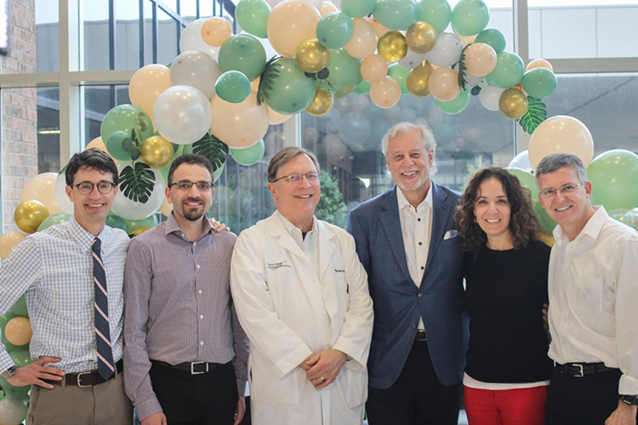
baghdadi, MD, Walter Sahijdak, MD,
Philip Stella, MD, Kathleen Beekman,
MD, and Christopher Reynolds, MD
MCRC is currently undergoing an exciting time of change and collaborative exploration. Upon the retirement of both our prior principal investigator, Philip Stella, MD, and director, Beth LaVasseur, MS, RN, who co-founded MCRC, a transition to new leadership occurred in 2022.
Dr. Al baghdadi now leads MCRC as PI after more than 3 years as co-PI. He is board certified in both medical oncology and hematology. He has served as study chair for numerous research protocols and contributes service to both the NCI and the American Society of Clinical Oncology (ASCO) through committee memberships. Most recently, Dr. Al baghdadi was elected to an upcoming 3-year term on the NCI Lymphoma Steering Committee. He is completing a term on the NCI Leukemia Steering Committee.
Our new director of oncology research, Rose Juhasz, PhD (pictured above), joined MCRC in February. She is a research psychologist by training who worked for 16 years within Michigan Medicine. Most recently, Dr. Juhasz managed system-wide quality and patient experience reporting initiatives, using innovative approaches in both analytics and implementation science. In prior research work, she was a member and then administrative leader of large-scale, multidisciplinary teams focused on substance abuse and cancer care delivery research, which were well-funded by both the NCI and the American Cancer Society.
Looking Towards the Future with Our Team
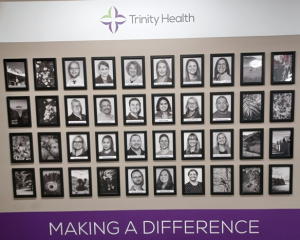 Together, we see a bright future for MCRC as we continue to grow our work with NCORP Research Bases and other external and internal partners. Our aim is to increase innovation, efficiencies, and impact in our research, supporting the latest discoveries in cancer care that are meaningful to patients, families, and providers. We are excited to help lead the oncology field to become even more evidence-based, patient-centric, and equitable to all patients who seek care in our community settings. We could not do this without all our consortium partners and MCRC home office team of over 30 staff from our nursing, pharmacy, data management, biorepository, regulatory affairs, and administration units (pictured in the collage). Thank you MCRC and ECOG-ACRIN team for all you do to maintain our successful collaboration and produce solid results for so many years!
Together, we see a bright future for MCRC as we continue to grow our work with NCORP Research Bases and other external and internal partners. Our aim is to increase innovation, efficiencies, and impact in our research, supporting the latest discoveries in cancer care that are meaningful to patients, families, and providers. We are excited to help lead the oncology field to become even more evidence-based, patient-centric, and equitable to all patients who seek care in our community settings. We could not do this without all our consortium partners and MCRC home office team of over 30 staff from our nursing, pharmacy, data management, biorepository, regulatory affairs, and administration units (pictured in the collage). Thank you MCRC and ECOG-ACRIN team for all you do to maintain our successful collaboration and produce solid results for so many years!
![ECOG-ACRIN logo[19516]275×75](https://blog-ecog-acrin.org/wp-content/uploads/2021/03/ECOG-ACRIN-logo19516275x75.png)
